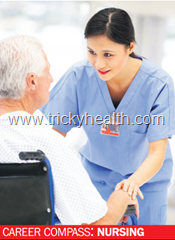WHY YOU SHOULD AWARE OF YOUR HEAVYWEIGHT?
There are lots of ways to lose weight but to keep the weight off is not always an easy task. The solution to successful weight loss is making changes in your eating and physical activity habits that you have to keep up for the rest of your life. The information in this article of health caring tips helps you to put you on the road to healthy living.
Why We Should Lose our Weight?????
There are some Weight-related Health Problems to prevent our self from these we have to lose our weight. These are as follows :
The Next question that comes in our mind is as follow:
Can I benefit from weight loss?
 Health experts agree that if you lose even a small weight then you may gain many health benefits:
Health experts agree that if you lose even a small weight then you may gain many health benefits:
· If a person loses 5 to 7 percent of their body weight then they may improve their health and quality of life & this will also prevent you from various weight-related health problems as we discuss above and highlighted with Red lines.
· On the psycho-social aspect if you have normal weight then you feel yourself stress free as people can’t call you fatty or something else. You will be satisfied with your appearance.
For maintaining a normal (average) Body weight you should follow a healthy diet and regular activity schedule that means you should have a nutritious diet (Green Leafy vegetables, more fluids, less spicy and oily diet) and regular exercises.
1. DIETARY CHANGES: As the diet controlling is in a person’s own hands & this is the secret of controlling our weight. So I person diet should be as follow:
3. Behavioral CHANGES: Some time wrong behavioral practices can also lead to weight gain so it is necessary to improve these practices, these are as follows:
Surgical methods: liposuction, gastric bypass, jaw-wiring, gastroplasty can be some bit beneficial but after a physician’s consultation only.
Continue your visit with us for more health tips and health cure articles. If you have any query and questions regarding this article post your comment and we will reply within 24 hr.
Written By: Pro. S.L Sharma.
There are lots of ways to lose weight but to keep the weight off is not always an easy task. The solution to successful weight loss is making changes in your eating and physical activity habits that you have to keep up for the rest of your life. The information in this article of health caring tips helps you to put you on the road to healthy living.
Why We Should Lose our Weight?????
There are some Weight-related Health Problems to prevent our self from these we have to lose our weight. These are as follows :
✔ Diabetes
✔ Heart disease or stroke
✔ High blood pressure
✔ High cholesterol
✔ Gallbladder disease
✔ Some types of cancer
✔ Osteoarthritis (wearing away of the joints)
✔ Sleep apnea (during sleep interrupted breathing)
The Next question that comes in our mind is as follow:
Can I benefit from weight loss?
 Health experts agree that if you lose even a small weight then you may gain many health benefits:
Health experts agree that if you lose even a small weight then you may gain many health benefits: · If a person loses 5 to 7 percent of their body weight then they may improve their health and quality of life & this will also prevent you from various weight-related health problems as we discuss above and highlighted with Red lines.
· On the psycho-social aspect if you have normal weight then you feel yourself stress free as people can’t call you fatty or something else. You will be satisfied with your appearance.
For maintaining a normal (average) Body weight you should follow a healthy diet and regular activity schedule that means you should have a nutritious diet (Green Leafy vegetables, more fluids, less spicy and oily diet) and regular exercises.
How can I lose my weight?Losing weight is not so much easy as people think it requires a great determination & self power. For an overweight person, losing 5-10%of body weight should be the aim. Here are some of the easy methods to reduce your body fat:
1. DIETARY CHANGES: As the diet controlling is in a person’s own hands & this is the secret of controlling our weight. So I person diet should be as follow:
- LOW CALORIE DIET: For losing your weight you have to take less calorie food as on the all food items total calorie value is written, here you can choose the food items with low calorie diet. For an adult only 1000 kcal (kilo calories) are recommended.
- LOW FAT DIET: lowering or taking fat free diet can help you in reducing your weight to 5%. For fat free diet you should take saturated, oil-free & less spicy diet.
- HIGH FIBRE DIET: Taking a high fibre diets such as green leafy vegetables, more fruits and tuberous food can also help you in reducing body fat. The fibre content of our food helps in delay (slow) emptying of our stomach as a result of this we did not feel hungry frequently.
- REDUCING DIET: Reducing the frequency & the amount of the diet as compared to regular diet can also help in reducing your body fat. Food intake should not be more than the energy requirement.
3. Behavioral CHANGES: Some time wrong behavioral practices can also lead to weight gain so it is necessary to improve these practices, these are as follows:
- STRESS (TENSION): Taking too much tension is also a cause of obesity, so just relieve this stress by keeping yourself happy, engage in heart soothing activities like YOGA, listening soft music, socialization & prayer etc.
- ALCOHOL/SMOKING: Many types of research show that alcohol consumption also leads to obesity. So say goodbye to these and have a healthy life.
- OTHERS: If by following all of the above practices regularly & honestly, your weight is uncontrollable then it can be due to some systemic (physical) disease such as hyperthyroidism etc. then you should consult a physician as soon as possible.
Surgical methods: liposuction, gastric bypass, jaw-wiring, gastroplasty can be some bit beneficial but after a physician’s consultation only.
Continue your visit with us for more health tips and health cure articles. If you have any query and questions regarding this article post your comment and we will reply within 24 hr.
Written By: Pro. S.L Sharma.


